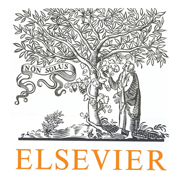دانلود ترجمه مقاله رفتارهای رهبری جمعی: بررسی نقش رهبر و شبکه های تیمی
| عنوان فارسی |
رفتارهای رهبری جمعی: بررسی رهبر، شبکه های تیمی و مشخصات وضعیت مساله که روی استفاده آنها تاثیر می گذارد |
| عنوان انگلیسی |
Collective leadership behaviors: Evaluating the leader, team network, and problem situation characteristics that influence their use |
| کلمات کلیدی : |
رهبری جمعی؛ تفاوت های فردی؛ شبکه؛ ارتباطات؛ تبادل رهبر – تیم |
| درسهای مرتبط | مدیریت رفتار سازمانی |
| تعداد صفحات مقاله انگلیسی : 22 | نشریه : ELSEVIER |
| سال انتشار : 2016 | تعداد رفرنس مقاله : 82 |
| فرمت مقاله انگلیسی : PDF | نوع مقاله : ISI |
|
پاورپوینت :
ندارد سفارش پاورپوینت این مقاله |
وضعیت ترجمه مقاله : انجام نشده است. |
1. مقدمه 2. روش 3. نتایج 4. بحث و بررسی

بررسی های کلی: در این مطالعه، ما تلاش کرده ایم تا پژوهش جامعی را در زمینه شکل های جمع گرایانه رهبری انجام دهیم و به طور خاص، به بررسی روابط ارائه شده در پژوهش های فردریک و همکاران (2009) در زمینه چارچوب رهبری جمعی پرداخته ایم. به منظور بررسی راهبردی مقالات منتشر شده در این زمینه، ما روی دو زمینه خاص تمرکز کرده ایم، این دو زمینه عبارتند از، درک نحوه ارتباط تمایزات فردی با رفتارهای فردی (آنتوناکیس، دی، و اسچینز، 2012) و اینکه فاکتورهای زمینه ای چگونه می توانند استفاده از رفتارهای رهبری جمعی را شکل دهند (داست و زیگرت، 2012؛ فردریک و همکاران، 2014؛ مومفورد و همکاران، 2012). یافته های مربوط به تمایزات فردی نشان می دهند که آنها ممکن است متفاوت با استفاده از شکل های دیگر مرتبط با رفتارهای جمعی رهبری باشند. درحالی که برخی از نظرات عمومی تر و محبوب تر حاکی از این موضوع هستند که رویکردهای رهبری جمعی ساده تر بوده و نیازمند اقدامات منحصر به فردتری از طرف رهبر می باشند و این موضوع ناشی از توزیع نقش رهبری می باشد، این موضع در واقع اشاره به این مورد دارد که این شکل از رهبری با توجه به رابطه مشاهده شده بین هوش و استفاده از رفتارهای تبادلی تیم و رهبر و توسعه شبکه، کاملا سازگار و منطبق می باشد. ما بر این باوریم که این همان مورد مناسب می باشد زیرا حضور در شبکه های بزرگ مستلزم شناخت است (کیلدوف و همکاران، 2008)، و تبادل رهبر و تیم نیازمند حضور در شبکه جهت ارزیابی دانش موجود، مهارت ها و توانایی ها و داشتن درکی دقیق از مشخصه های شبکه می باشد طوری که این نقش با نقش فردی و تخصص مربوطه تناسب کافی را داشته باشد. تجارب قبلی حاکی از روابط جالب توجهی با رفتارهای رهبری جمعی می باشند. در حالی که تجربه سازمانی قبلی رهبر ارتباط مثبتی با استفاده آنها از رفتارهای ارتباطی و توسعه شبکه داشت با این حال بالاترین سطح تجربه رهبری قبلی ارتباطی منفی را با استفاده از رفتارهای ارتباطی نشان داد. تجربه موقعیتی می تواند دانش مورد محور مفیدی ارائه دهد که رهبران بر طبق آن می توانند از آنها در حل مسائل استفاده کرده (مومفورد، فردریک، کاگورن و بایرن، 2007) و بیشتر با شبکه ارتباط برقرار کنند و نحوه استفاده از آنها برای حل مسائل بیشتر را بهتر بیاموزند. با این حال، تجربه ارتباط مستقیمی با وظیفه دارند مواردی چون تجربه رهبری می تواند احساس خوشایندتری را در افراد ایجاد کرده (چان و دراسگو، 2001) و دنبال کردن اطلاعات و بازخورد از جانب دیگران را به همراه داشته باشد (گیلی و همکاران، 1998)، این موضوع رفتارهای کلیدی در ابعاد ارتباطی محسوب می گردد.
General discussion: In the present study we have sought to advance research on collectivistic forms of leadership, and specifically add to the body of work testing the relationships proposed in the Friedrich et al. (2009) collective leadership framework. To add to the literature in a strategic way, we focused on two areas of research that leadership scholars, and collective leadership scholars in particular, have called for more work — understanding how individual differences relate to leadership behaviors (Antonakis, Day, & Schyns, 2012), and how contextual factors may shape the use of collective leadership behaviors (Dust & Ziegert, 2012; Friedrich et al., 2014; Mumford et al., 2012). The findings with regard to individual differences indicate that there may, in fact, be differences in who utilizes different forms of collective leadership behaviors. While some popular opinion might imply that collective leadership approaches are easier or require less effort from the leader due to the distribution of the leadership role, it may actually be the case that this form of leadership is quite cognitively demanding given the observed relationship between intelligence and the use of Network Development and Leader–Team Exchange behaviors. We believe this is the case because attending to large networks is cognitively demanding (Kilduff et al., 2008), and Leader–Team Exchange requires attending to the network to assess the available knowledge, skills and abilities and having an accurate understanding of the network characteristics so that the role can be appropriately shared with the individual with the relevant expertise. Prior experience exhibited an interesting, and possibly counterintuitive relationships with collective leadership behaviors. While the leader's prior organizational experience was positively related to their use of Network Development and Communication behaviors, their highest level of prior leadership experience was negatively related to the use of Communication behaviors. Situational expertise can provide useful case-based knowledge that leaders can utilize in problem solving (Mumford, Friedrich, Caughron, & Byrne, 2007), and may make them more attuned to their network and how they can use it to solve problems. However, experience, particularly experience directly relevant to the task, such as leadership experience, can make individuals feel more confident (Chan & Drasgow, 2001) and may make it less likely that they seek out information and feedback from others they believe do not have as much experience (Gilly et al., 1998), which are key behaviors in the Communication dimension.



دیدگاهها
هیچ دیدگاهی برای این محصول نوشته نشده است.